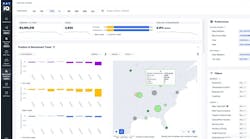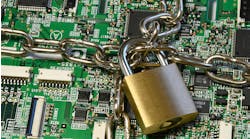As a kid, I heard that often enough for the pranks I would play on others, especially my older brothers and sister. Something along those lines caught my attention in a December 2nd issue of the Wall Street Journal article this week, in the midst of meetings on technology for fuel consumption reduction and SuperTrucks. It relates to the adoption rate of technology in our industry.
The article was about the demise of cash as a form of payment. It’s now costing companies more money to handle cash than they would like and third parties, called cash recyclers, are taking over the responsibility of counting and transporting it safely. The percentages for payments in the country are 40% cash, 25% debit cards, 17% credit cards and 18% check and electronic payments. But, the article points out that Pilot Flying J does $2.5 billion annually in purchases for coffee, pizza, and tacos. And, more than 50% of those payments are done with cash. So, in spite of bank credit cards being around since 1946, cash is still the big winner for payments at Pilot Flying J truck stops. It’s not debit or credit cards and certainly not checks.
In the Future Truck Committee meeting in the fall of 2013 I talked about payments. In this country, we started with trading such things as beads with Native Americans. The first coin was minted in 1793 and the first paper came out during the Civil War in 1862. While private department stores had credit cards in the early 20th century, the first bank credit card came out in 1946. Not so long ago, I started paying for my americanos and mochas at Starbucks with a bar code on an app on my iPhone. This last month I enabled Apple Pay on my iPhone 6 so that I can speed up paying even more using the fingerprint on 3-4 different fingers.
Speeding up the payment process is the attraction for me and others. The article mentions the issue at hair salons. After sitting in a chair chatting for one-half hour or more, clients want to get up and go. Instead they have to take more time to stop and pay. Electronic payment methods speed the process and cut down on the paperwork. At Office Depot they ask if I want a paper receipt or an e-mail in an attempt to reduce their costs and speed the checkout process.
Think about this. How much better will the life of a truck driver be if she can check out at the truck stop more quickly with less effort. Will we get more productive hours out of the limited 14 hours per day on duty? Isn’t that why we have weigh station bypass and electronic toll collection devices in the cab? Our industry uses electronic payments for so many things dealing with service parts, service itself, shipper payments and other items. If we want this industry to be a good place to work for the millenials and those younger, we may need to make some changes. If we want this industry to overcome its challenges of driver shortages, congestion and everything else, we need to put effort into every aspect of the business that we can improve by reducing costs, decreasing time and increasing quality.
As one more point on this subject of payment, consider this TED Talk by Joy Sun. Unsmart, dumb phones, are used for payments in unexpected, remote regions of the world—with great success.
Let’s find ways to embrace technology, overcoming the unique issues our industry faces with every new technology.


